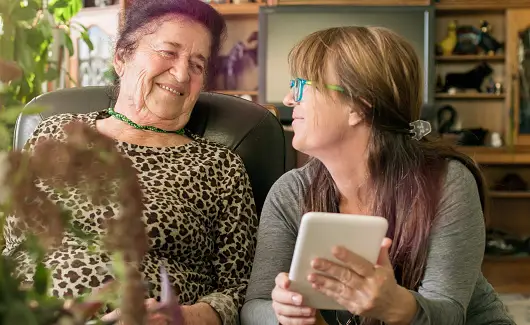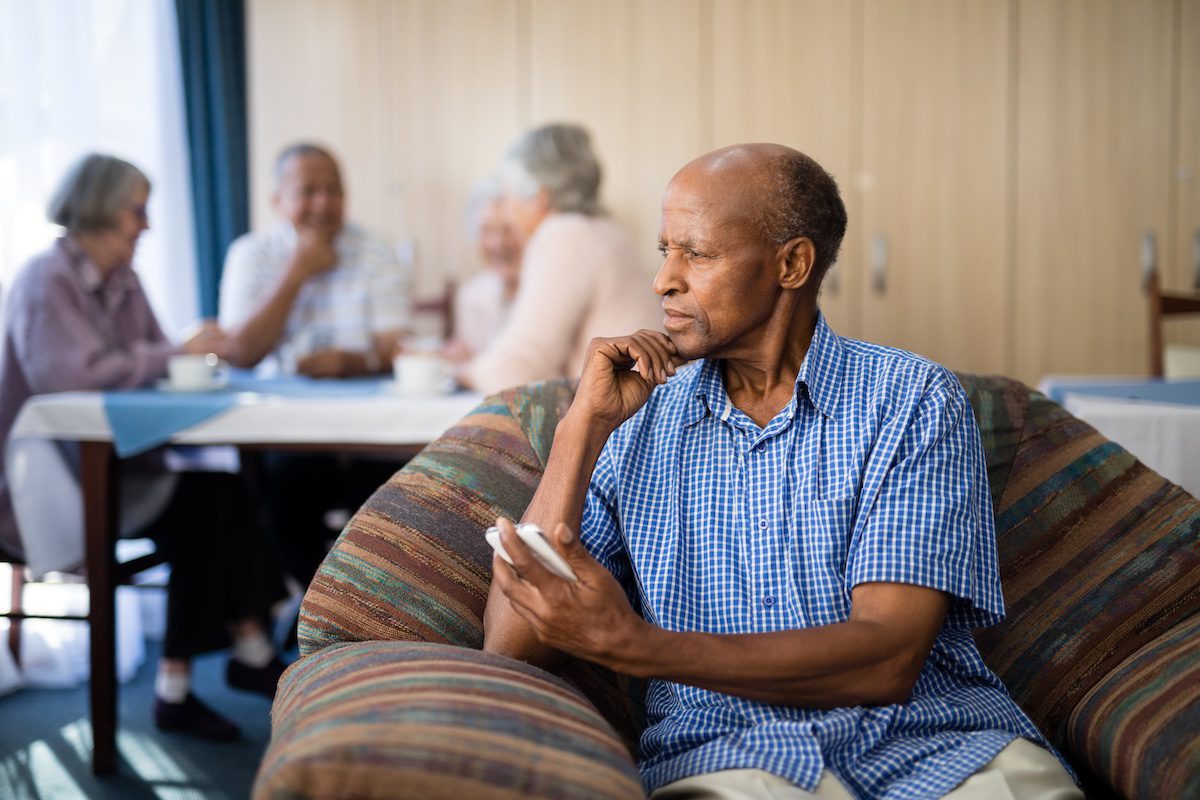The Volunteer Need Is Strong

The COVID-19 pandemic has undoubtedly taken a toll on nursing homes, hospice centers, and assisted living facilities, leaving many vulnerable individuals isolated and in need of support. Volunteering in these settings becomes even more critical as we navigate the post-pandemic world. The devastating impact of the pandemic has heightened feelings of loneliness, anxiety, and despair among residents, making the presence of volunteers all the more valuable. Volunteers offer companionship, emotional support, and a sense of connection that can help alleviate the negative effects of isolation. Volunteers can bring joy, comfort, and a renewed sense of community to those who need it most by dedicating their time and energy. Their efforts in nursing homes, hospice centers, and assisted living facilities can make a significant difference in improving the well-being and quality of life for the residents, helping them rebuild their lives and find solace in human connection once again.
Volunteer work in hospice care has long been recognized as a noble endeavor that offers immeasurable benefits to patients and volunteers. Hospice care is a specialized form of medical care that focuses on providing support, comfort, and dignity to individuals in the final stages of a terminal illness.
Emotional Support and Companionship
One of the most significant benefits of volunteer work in hospice care is the emotional support and companionship that volunteers provide to patients. Facing the end of life can be an isolating and challenging experience for individuals and their families. Volunteers offer a comforting presence, lending a compassionate ear to listen, holding a hand, or engaging in meaningful conversations. Their empathetic presence helps alleviate feelings of loneliness, fear, and anxiety, providing patients with much-needed emotional solace.
Enhanced Quality of Life
Volunteers play a crucial role in enhancing the quality of life for hospice patients. They offer companionship and engage in activities such as reading, playing games, or simply sharing stories. By doing so, volunteers contribute to reducing feelings of boredom and depression, promoting a sense of purpose and joy in the lives of patients. Additionally, volunteers often organize outings or fulfill small wishes, creating memorable experiences that bring happiness and fulfillment to individuals during their final days.
Respite for Caregivers

Volunteer work in hospice care benefits patients and provides much-needed respite for family caregivers. Caring for a terminally ill loved one can be physically and emotionally exhausting. Volunteers step in to offer relief by providing temporary care, allowing caregivers to take a break, run errands, or attend to their personal needs. This respite allows caregivers to recharge and continue providing the best care possible for their loved ones.
Personal Growth and Fulfillment
Engaging in volunteer work in hospice care offers a unique opportunity for personal growth and fulfillment. Volunteers gain a deeper understanding and appreciation for the fragility of life, the importance of empathy, and the value of human connection. By providing comfort and support to patients and their families, volunteers experience a profound sense of purpose and satisfaction. The act of selflessly serving others during their most vulnerable moments can be transformative, fostering personal growth and instilling a sense of gratitude and compassion.
Learning and Skill Development
Volunteering in hospice care offers an avenue for learning and skill development. Volunteers receive training and education on various aspects of hospice care, including communication skills, active listening, and understanding end-of-life issues. They learn to navigate complex emotional landscapes with sensitivity and empathy. The knowledge and skills gained through volunteering can be applied in the hospice setting, personal relationships, and other areas of life.
Building Meaningful Connections
Volunteer work in hospice care often leads to the formation of meaningful connections between volunteers, patients, and their families. Volunteers become part of a larger support network by being present during vulnerable moments and sharing a deep bond with those they serve. These connections not only enrich patients’ lives but also allow volunteers to learn from the wisdom and experiences of those nearing the end of life.
Positive Impact on Society
Volunteer work in hospice care has a far-reaching impact on society as a whole. By dedicating their time and energy to supporting terminally ill individuals, volunteers contribute to the creation of a compassionate and caring community. Their efforts inspire others to engage in similar acts of service, fostering a culture of empathy and solidarity. Furthermore, volunteers play a vital role in raising awareness about the importance of end-of-life care and advocating for better policies and resources to support individuals and families facing terminal illnesses.
What Types Of Jobs Are There?
Many don’t feel qualified to help out in this type of situation. Remember that hospice care is not just about medical care. There are many levels of care that you can provide as a volunteer no matter what experience you have.

Companionship and Emotional Support
One of the most significant roles of a hospice volunteer is providing companionship and emotional support to patients. Volunteers offer a compassionate presence, lending an empathetic ear and engaging in meaningful conversations. They may spend time with patients, reading to them, playing games, or simply offering a comforting presence. Volunteers help alleviate feelings of loneliness, anxiety, and fear by fostering a connection and providing emotional solace.
Respite Care
Volunteers can provide respite care, offering temporary relief to family caregivers responsible for caring for a loved one in hospice. Volunteers allow caregivers to rest, attend appointments, run errands, or take care of their own well-being by taking over caregiving duties for a few hours or a day. This respite is crucial in preventing caregiver burnout and ensuring that caregivers can continue providing the best care for their loved ones.
Practical Assistance
Hospice volunteers may also assist with practical tasks that help improve patients’ daily lives. This can include light household chores, such as light cleaning, organizing, or meal preparation. Volunteers can also help with errands like grocery shopping or picking up medications. These small but essential tasks alleviate some practical burdens for patients and their families, allowing them to focus on their emotional well-being and spend quality time together.
Supportive Listening
Active listening is a fundamental skill that hospice volunteers employ to provide emotional support. Volunteers lend a compassionate ear and create a safe space for patients and their families to express their feelings, fears, and concerns. They offer non-judgmental support, empathy, and validation, helping individuals navigate the complex emotions that arise during end-of-life experiences.
Vigil Volunteers
In some cases, volunteers may serve as vigil volunteers, providing companionship and support to patients in their final hours. Vigil volunteers ensure that no one faces the end of life alone by staying bedside with patients without family or friends. Their presence offers comfort and reassurance, creating a peaceful environment during this transition.
Bereavement Support
Hospice volunteers can extend their support beyond the patient’s passing by assisting with bereavement services. This may involve reaching out to families after the loss, offering condolences, and providing resources for grief support. Volunteers can also participate in memorial services or assist with bereavement support groups, helping individuals navigate the grieving process.
Administrative Assistance
Behind the scenes, hospice volunteers can contribute by offering administrative assistance. This may include tasks such as data entry, answering phone calls, organizing files, or assisting with mailings. By helping with administrative duties, volunteers enable hospice staff to focus on delivering essential care and support to patients and their families.
Make Your Impact
Now is the opportune moment to make a meaningful impact by volunteering. As we emerge from the challenges of the COVID-19 pandemic, there is a heightened need for support and compassion in various sectors, including hospice care. The effects of isolation, loss, and emotional strain are still palpable, making the presence of volunteers even more vital. By dedicating our time and energy to serve others, we have the power to uplift spirits, provide solace, and restore a sense of community. Each act of kindness, no matter how small, can create a ripple effect of positivity and impact the lives of individuals and their families.







